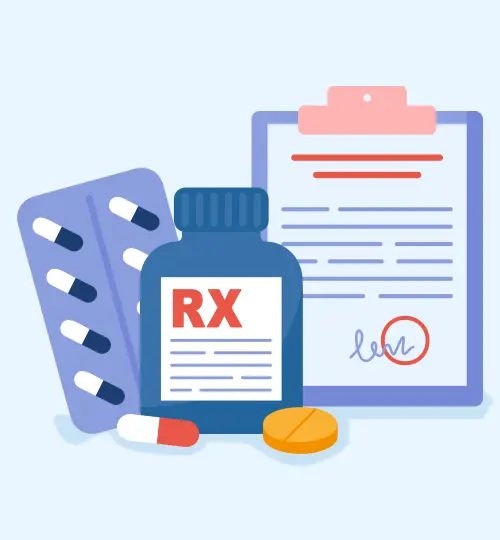Linguistic validation is a critical process in medical research and pharmaceuticals, especially for multilingual clinical trials and global healthcare services. The main goal of linguistic validation is to ensure that translated documents are not only linguistically accurate but also culturally relevant and understandable to participants in clinical trials or users of medical products. This process ensures that the intended meaning, nuances, and clinical information are consistently maintained across different languages.
At Willingjet, we specialize in providing top-tier linguistic validation services such as COA translation tailored to support pharmaceutical companies, CROs, and healthcare organizations in achieving precise clinical outcomes and regulatory compliance. Our approach enhances the validity of translated clinical assessments, ensuring correct interpretation across every translation.
Typical stages and processes for linguistic validation:

Professional translators and reviewers translate the original documents into the target language(s).

A second forward translation is done to minimize misunderstandings of the source content or misalignment.

A separate translator translates the documents back into the original language.

The back-translated documents are compared with the original documents to identify and resolve any discrepancies.

The translated documents are tested with native speakers of the target language(s) through cognitive debriefing interviews to ensure comprehension and cultural appropriateness.

Cross-cultural adaptation to ensure that the translated material is culturally appropriate and relevant for the target audience.

Validating patient-reported outcomes (PRO) measures to ensure they accurately capture the intended information and are easily understood by the target population.

Finalizing the translated documents based on feedback from cognitive debriefing interviews and the validation report.
Understanding cognitive processes means moving beyond theory to real-world application. Our Cognitive Debriefing Process does just that, testing instruments with real participants to ensure clarity and effectiveness.
Our recruitment team carefully selects the right group of patients for each study. We match our selection criteria to the client's needs and research goals, aiming for at least five participants. We consider factors like gender, age, occupation, education, and health status to ensure a diverse and representative sample.
Cognitive interviews are conducted by our cognitive debriefing team, where skilled clinical interviewers engage participants in face-to-face or virtual interactions. Using advanced tools like Valitracks, we capture and document participant insights in real-time. This dynamic setup lets stakeholders, investigators, clients, and regulatory bodies to actively monitor progress, provide feedback, and speed up the validation process.
After the interviews are completed, we compile the findings into a comprehensive summary report. The results are translated into the source language, usually English, for detailed discussion with key stakeholders. If more clarification is needed, additional rounds of questioning may follow, leading to further refinements. Ultimately, we present recommendations to the project manager, shaping the final version of the document.
Linguistic validation is essential in the medical and pharmaceutical fields to ensure documents used in clinical trials and healthcare are accurately translated and culturally appropriate. Typical documents that require linguistic validation include:

These are self-reported assessments where patients describe their symptoms, overall health status, and the impact of the disease and treatment on their daily lives, without interpretation by a healthcare provider. PROs are essential for understanding the effectiveness of medical interventions from the patient's perspective.
ClinRO's are provided by trained healthcare providers based on their observations and clinical judgment. ClinRO's evaluate observable and measurable aspects of a patient's health status, such as motor function and physical signs of a disease.
These reports are provided by someone other than the patient or healthcare provider, usually a family member or caregiver, who observes the patient's health condition. ObsROs are used when the patient is unable to report for themselves, such as in pediatric or cognitive impairment studies.
Patients perform tasks that are scored by an assessor. Performance Outcomes can evaluate physical abilities, mental functions, or other capabilities to assess treatment impacts or disease progression.
Our expert network includes over 800 medical linguists and subject matter experts worldwide, ensuring your project benefits from deep professional expertise and localized knowledge.
With our WJLingua Suite, we are setting new standards in the efficiency and comprehensiveness of linguistic validations.
We customize our services to meet each client's specific needs, ensuring flexibility and responsiveness throughout the validation process.
Over 50 linguistic validation projects conducted for the past 3 years. Trusted partner of large pharmaceuticals, CROs and COA/e-COA providers.
 What is linguistic validation in translation?
What is linguistic validation in translation?
Linguistic validation in translation is a meticulous process aimed at ensuring that translated materials, particularly those used in clinical trials, patient-reported outcomes (PROs), and other healthcare-related documents, are both accurate and culturally relevant. This process goes beyond mere translation; it involves multiple steps to confirm that the translated text conveys the same meaning and elicits the same responses as the original.
The process typically begins with forward translation, where the original document is translated into the target language by a professional translator. This is followed by back-translation, where a different translator, unaware of the original text, translates the document back into the original language. Comparing the back-translation with the original helps identify discrepancies and areas needing adjustment.
Next, a review by subject matter experts ensures that medical terminology and context are accurately represented. Cognitive debriefing is then conducted, where a sample of the target audience reviews the translation to ensure it is understandable and culturally appropriate. Any feedback is used to make necessary revisions.
Finally, a harmonization step ensures consistency across different language versions. This rigorous process ensures that the translated material is not only linguistically accurate but also culturally sensitive, thereby maintaining the integrity and reliability of the data collected across diverse populations.